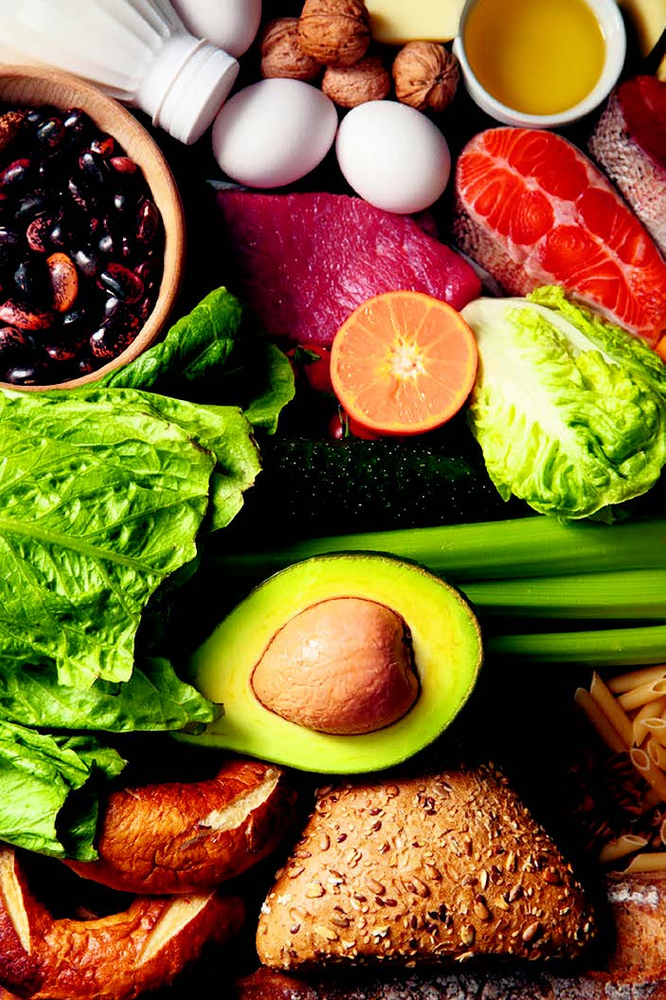
By Alice Callahan
The popularity of hit podcasts, bestselling literature, and social media influencers suggests that countless individuals are fascinated by the concept of longevity.
However, alongside lifespan, your health span, which refers to the duration you enjoy good health, is crucial, as noted by Susan B. Roberts, senior associate dean for research at Dartmouth’s Geisel School of Medicine.
The duration and quality of life can partly be influenced by genetic factors, she explained, but personal lifestyle choices are also vital, encompassing factors like exercise frequency, sleeping patterns, alcohol consumption, smoking, and dietary habits, Roberts added.
Nutrition for longevity isn’t precisely defined. It’s neither practical nor ethical for researchers to expect individuals to adhere to specific diets over decades to assess outcomes, stated Dr. Frank Hu, a nutrition and epidemiology professor at Harvard T.H. Chan School of Public Health.
Still, researchers are able to analyze correlations between dietary practices and long-term health outcomes, Hu noted.
Here are the most promising guidelines available regarding eating for a lengthy and healthy life.
Prioritize protein
Findings indicate that individuals who include more protein in their diets generally experience longer lives and maintain strength and health better in later years compared to those with lower protein intake.
However, the source of your protein is essential. Plant-derived proteins from legumes, nuts, and whole grains appear particularly advantageous, while protein from red and processed meats correlates with shorter lifespans, as noted by Dr. Lars Fadnes, a global public health professor at the University of Bergen in Norway, via email.
Protein is vital for preserving healthy muscles and bones, which can assist older individuals in staying active and preventing falls and fractures, explained Denise K. Houston, a gerontology and geriatric medicine professor at Wake Forest University School of Medicine.
Houston and other specialists suggest that those aged 65 and above should consume around 0.45 to 0.54 grams of protein per pound of body weight daily. For a 150-pound individual, this equates to approximately 68 to 81 grams of protein. To enhance protein absorption and utilization, it’s advisable to spread your intake throughout the day, Houston advised.
Boost your bone health
Alongside adequate protein, it’s essential to ensure sufficient calcium and vitamin D intake to maintain bone health as you get older, Roberts emphasized.
Dairy products, fortified plant-based milks, orange juice, and cereals serve as good sources of these key nutrients. Calcium can also be found in yogurt, cheese, tofu, beans, and leafy greens. While sunlight exposure is a primary source of vitamin D, foods like fish, mushrooms, and eggs contribute additional quantities.
Ideally, Houston recommends obtaining calcium from food sources. Nonetheless, if you find you are lacking in either nutrient, consult your healthcare provider regarding the appropriateness of supplements.
Increase polyphenol intake
Plant-based foods including fruits, vegetables, whole grains, nuts, and legumes are abundant in polyphenols — antioxidant and anti-inflammatory compounds that some studies indicate may aid healthy aging.
Coffee, for instance, is a significant source of polyphenols. Consuming three to five cups daily has been linked to lowered risks of Type 2 diabetes, heart disease, certain cancers, Parkinson’s disease, cognitive decline, and premature death, according to Hu. Green tea may offer similar benefits, though research supporting this is less extensive.
Moreover, other foods rich in polyphenols such as berries, dark leafy greens, avocados, and extra-virgin olive oil have also been associated with health advantages, including enhanced life expectancy and improved brain health.
Focus on healthy fats
Diets high in unsaturated fats, which are present in olive oil, most plant oils, nuts, seeds, and avocados, have been correlated with lower mortality rates, research by Hu and colleagues indicates. In contrast, diets rich in saturated fats found in red and processed meats seem to have a detrimental impact.
Oily fish such as salmon, tuna, anchovies, and sardines are teeming with omega-3 fatty acids, which have been linked to enhanced brain health and longevity, according to Houston.
Limit ultraprocessed foods
Ultraprocessed foods—encompassing various packaged items like hot dogs, chicken nuggets, sodas, and many baked goods—are increasingly associated with a heightened risk of health issues such as heart disease, Type 2 diabetes, dementia, and reduced lifespan.
A study published in 2023 revealed strong correlations between processed meats and sugar-sweetened beverages like soda and premature mortality—making it important to limit these categories for increased life expectancy, claimed Fadnes.
Ultraprocessed foods often contain “fast carbohydrates,” which are rapidly digested, resulting in blood sugar spikes. Over time, those spikes may elevate the risk of Type 2 diabetes and cardiovascular diseases, Hu explained. Many of these foods are also typically high in sodium, contributing to high blood pressure, as per Houston.
Look at the broader perspective
What’s more vital than any single food choice is your overall dietary pattern, according to Hu. He has explored several eating patterns—such as the Mediterranean diet, plant-based diets, and federally recommended dietary guidelines—and determined each is linked to a decreased risk of early death.
These dietary approaches emphasize a variety of unprocessed or minimally processed foods, with a strong focus on vegetables, whole grains, nuts, and legumes, Hu noted. Additionally, he emphasized the flexibility of choices available for healthy aging, stating, “One size does not fit all.”
For instance, Hu has adopted what he refers to as a traditional Asian diet, regularly incorporating tofu, seaweed, and green tea, while also recognizing the merits of the Mediterranean diet by including extra-virgin olive oil and relishing his coffee.
